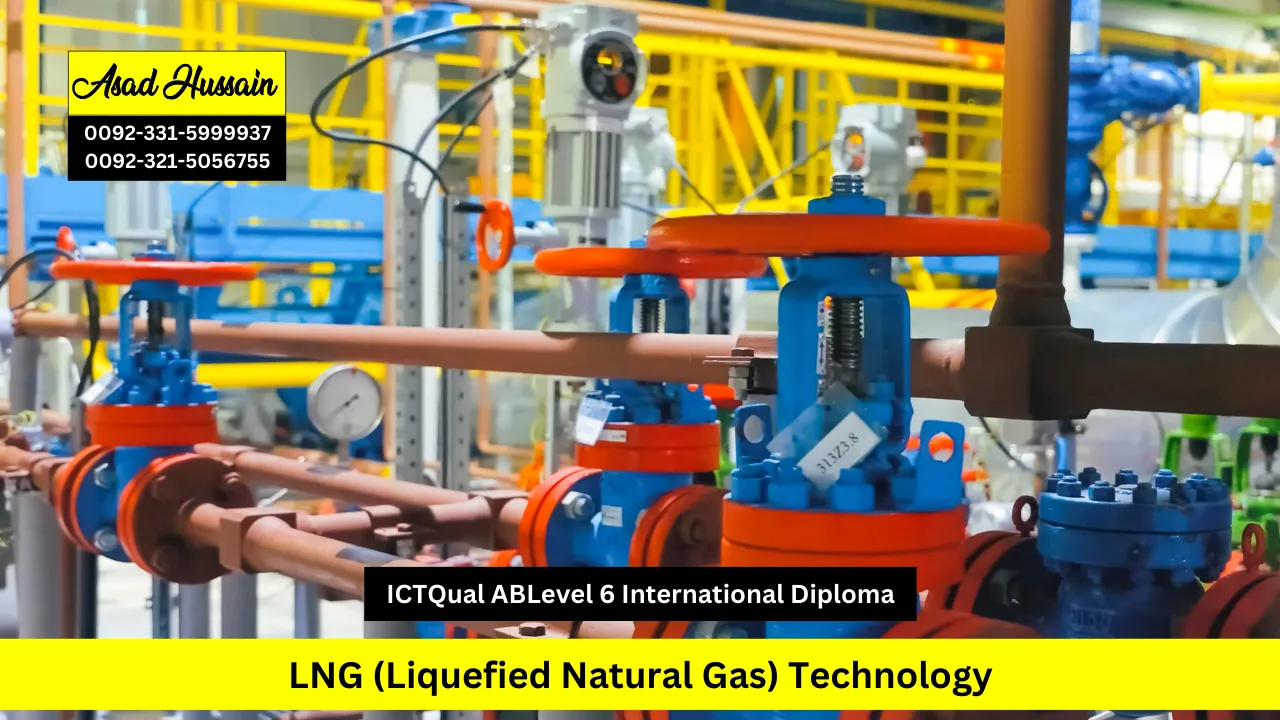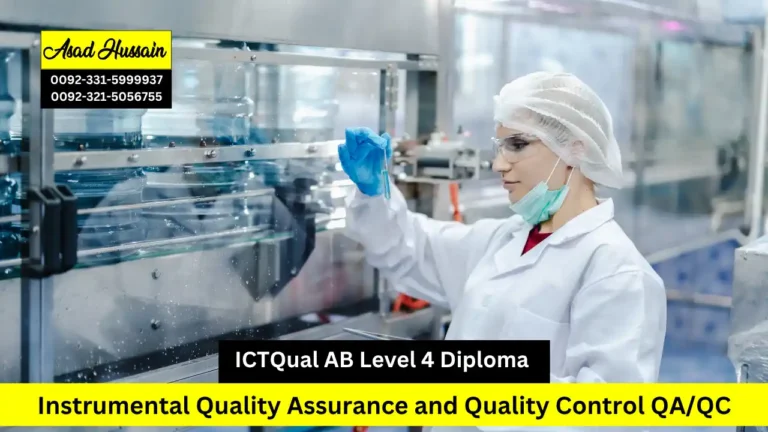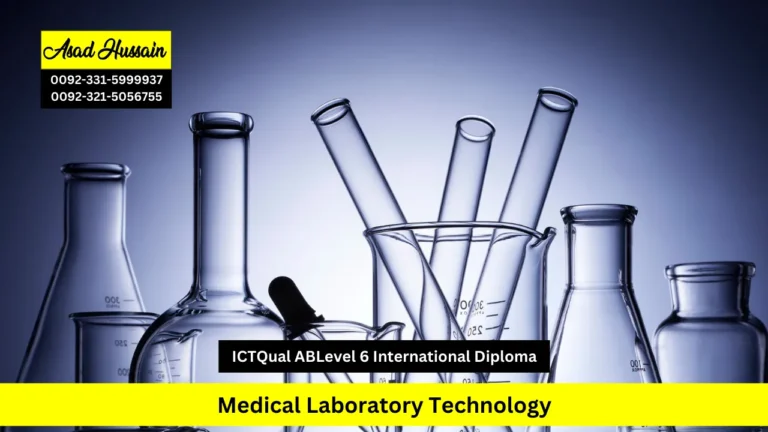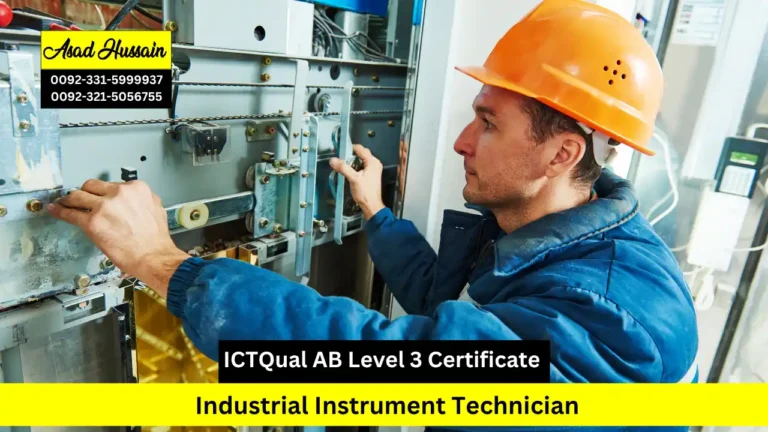The ICTQual AB Level 6 International Diploma in LNG (Liquefied Natural Gas) Technology is a specialized qualification designed to meet the growing demand for professionals in the LNG sector, one of the fastest-expanding areas in the global energy industry. As countries transition toward cleaner and more sustainable energy sources, LNG has become a vital component of the world’s energy mix, creating a strong need for skilled experts who can manage its technologies and operations.
ICTQual ABLevel 6 International Diploma in LNG (Liquefied Natural Gas) Technology provides comprehensive coverage of LNG production, storage, transportation, and regasification, ensuring learners develop both theoretical understanding and practical competence. Participants will explore key areas such as cryogenic engineering, LNG terminal operations, process safety, environmental regulations, and project management within LNG facilities.
Graduates of this program will gain the knowledge and skills required to handle complex LNG technologies, ensure compliance with international standards, and drive innovation in LNG projects. ICTQual AB Level 6 International Diploma in LNG (Liquefied Natural Gas) Technology is suitable for aspiring engineers, technical professionals, and managers who want to advance their careers in the oil, gas, and energy industries.
By completing the ICTQual AB Level 6 International Diploma in LNG Technology, learners will earn a globally recognized qualification that enhances employability, supports career progression, and prepares them to contribute to the sustainable future of the global energy market.
Program Highlights
Study Units
Year 1 – Foundation in LNG Technology
- Principles of Chemical and Process Engineering
- Introduction to Liquefied Natural Gas (LNG)
- Natural Gas Properties and Analysis
- LNG Production Processes Overview
- Cryogenic Principles and Applications
- Heat and Mass Transfer in LNG Systems
- Introduction to LNG Plant Equipment and Technology
- Process Instrumentation and Control Basics
- Health, Safety, and Environmental Awareness
- Industrial Laboratory Techniques
- Technical Report Writing
- Introduction to LNG Simulation Software
Year 2 – Intermediate LNG Technology
- Advanced LNG Liquefaction Processes
- Gas Pretreatment and Sweetening Techniques
- Refrigeration Cycles and Cryogenic Operations
- Process Control and Automation in LNG Plants
- Energy Management and Efficiency in LNG Operations
- LNG Storage and Tank Design
- Process Safety Management and Hazard Analysis
- LNG Transportation and Pipeline Technology
- Quality Control and Assurance in LNG Production
- Environmental Management and Sustainability
- LNG Blending and Product Optimisation
- Data Analysis and Technical Communication
Year 3 – Advanced LNG Technology
- Advanced LNG Plant Optimisation and Troubleshooting
- LNG Project Management and Planning
- Advanced Cryogenic Engineering and Heat Exchangers
- LNG Process Simulation and Modelling
- Corrosion, Maintenance, and Reliability in LNG Systems
- Energy Transition and Cleaner LNG Technologies
- Risk Assessment and Emergency Response
- Advanced Laboratory Techniques and Process Testing
- Supply Chain and Logistics in LNG Operations
- Capstone Project in LNG Technology
- Professional Development and Leadership in Energy
- Strategic Decision-Making in LNG Plant Management
The entry requirements for the ICTQual AB Level 6 International Diploma in LNG (Liquefied Natural Gas) Technology are structured to ensure learners are academically prepared and professionally capable of excelling in this advanced-level qualification.
Age Requirements
- Learners must be 18 years of age or older at the time of enrollment in ICTQual ABLevel 6 International Diploma in LNG (Liquefied Natural Gas) Technology.
- Applicants are expected to demonstrate maturity, commitment, and readiness for professional-level study.
Educational Requirements
- A Level 5 diploma, higher national diploma, or equivalent qualification in engineering, petroleum studies, energy, or a related technical field.
- Strong academic performance in mathematics, science, or engineering subjects is highly desirable.
Professional Experience
- A minimum of two years of industry experience in LNG, oil and gas, energy operations, or process engineering is recommended.
- In certain cases, practical experience in related technical fields may be considered in place of formal qualifications.
English Language Proficiency
- Applicants must demonstrate proficiency in English for academic and technical study.
- This can be shown through IELTS, TOEFL, or equivalent certifications, or prior education/work experience in an English-speaking environment.
The entry requirements for the ICTQual AB Level 6 International Diploma in LNG Technology ensure that learners have the academic foundation, technical experience, and language proficiency needed to excel in this challenging and rewarding field.
The ICTQual AB Level 6 International Diploma in LNG Technology equips learners with the knowledge, technical expertise, and practical skills needed to excel in the liquefied natural gas industry. Graduates will be prepared to manage LNG production, operations, and plant management while adhering to global safety, environmental, and sustainability standards.
Year 1 – Foundation in LNG Technology
Principles of Chemical and Process Engineering
- Understand fundamental principles of chemical and process engineering applied to LNG systems.
- Analyze chemical reactions, process flows, and energy balances.
- Apply theoretical knowledge to basic LNG process calculations and problem-solving.
Introduction to Liquefied Natural Gas (LNG)
- Describe the LNG industry, market trends, and operational practices.
- Explain the liquefaction process and its significance in energy supply.
- Identify components and stages in LNG production.
Natural Gas Properties and Analysis
- Understand chemical and physical properties of natural gas.
- Perform basic gas composition analysis and quality evaluation.
- Apply laboratory techniques for gas testing and measurement.
LNG Production Processes Overview
- Describe the key stages of LNG production, including liquefaction and storage.
- Understand flow diagrams and process units.
- Evaluate process efficiency using fundamental engineering calculations.
Cryogenic Principles and Applications
- Explain cryogenic principles relevant to LNG operations.
- Understand low-temperature handling, insulation, and safety measures.
- Apply cryogenic knowledge in laboratory experiments and simulations.
Heat and Mass Transfer in LNG Systems
- Understand heat exchange and mass transfer mechanisms in LNG processes.
- Solve basic heat and mass balance problems.
- Apply principles to LNG plant equipment design and optimization.
Introduction to LNG Plant Equipment and Technology
- Identify major LNG plant equipment and their functions.
- Explain operational principles of compressors, heat exchangers, and storage tanks.
- Apply knowledge in laboratory-based equipment demonstrations.
Process Instrumentation and Control Basics
- Understand measurement and control systems in LNG operations.
- Monitor process variables such as temperature, pressure, and flow rate.
- Apply basic control strategies to optimize process stability and safety.
Health, Safety, and Environmental Awareness
- Implement safety protocols in laboratory and industrial LNG environments.
- Identify environmental hazards and adopt mitigation measures.
- Ensure compliance with workplace safety standards.
Industrial Laboratory Techniques
- Develop practical skills in testing, sampling, and analysis.
- Conduct experiments related to LNG process parameters.
- Record and interpret laboratory results accurately.
Technical Report Writing
- Prepare professional reports documenting experiments and process observations.
- Communicate findings clearly and accurately for academic and industrial contexts.
- Apply structured reporting standards for technical documentation.
Introduction to LNG Simulation Software
- Use simulation software to model LNG processes and operations.
- Analyze system behavior and optimize process parameters virtually.
- Validate simulation outcomes with laboratory or field data.
Year 2 – Intermediate LNG Technology
Advanced LNG Liquefaction Processes
- Understand advanced liquefaction cycles and their thermodynamic principles.
- Evaluate efficiency and capacity of liquefaction systems.
- Apply process calculations to optimize LNG production.
Gas Pretreatment and Sweetening Techniques
- Analyze methods for removing impurities and contaminants from natural gas.
- Evaluate gas sweetening technologies for industrial application.
- Apply safety and quality control measures during pretreatment processes.
Refrigeration Cycles and Cryogenic Operations
- Understand refrigeration cycles in LNG plants.
- Apply thermodynamic principles to optimize cryogenic operations.
- Evaluate equipment performance and energy efficiency.
Process Control and Automation in LNG Plants
- Implement advanced automation systems for LNG operations.
- Monitor and control process variables for optimal production.
- Utilize digital tools for predictive maintenance and operational efficiency.
Energy Management and Efficiency in LNG Operations
- Apply energy management strategies to reduce consumption and emissions.
- Evaluate process efficiency and propose optimization solutions.
- Monitor key performance indicators (KPIs) for energy usage.
LNG Storage and Tank Design
- Understand LNG storage principles and cryogenic tank designs.
- Evaluate safety, insulation, and structural requirements.
- Apply knowledge in design calculations and hazard assessments.
Process Safety Management and Hazard Analysis
- Conduct risk assessments for LNG processes.
- Implement hazard identification and mitigation strategies.
- Develop emergency response plans and safety protocols.
LNG Transportation and Pipeline Technology
- Understand LNG transportation methods including pipelines and shipping.
- Evaluate material compatibility, flow dynamics, and safety measures.
- Apply logistics principles to ensure safe and efficient LNG delivery.
Quality Control and Assurance in LNG Production
- Implement quality management protocols in LNG operations.
- Conduct testing and monitoring to ensure compliance with industry standards.
- Analyze and report performance deviations and corrective actions.
Environmental Management and Sustainability
- Evaluate environmental impacts of LNG operations.
- Implement sustainable practices and emissions reduction strategies.
- Monitor compliance with environmental regulations.
LNG Blending and Product Optimisation
- Understand LNG blending techniques for product specification compliance.
- Optimize chemical composition for energy efficiency and market standards.
- Apply analytical methods to ensure consistent quality.
Data Analysis and Technical Communication
- Collect, process, and interpret operational data.
- Present technical findings through reports, presentations, and dashboards.
- Apply data-driven decision-making for process improvement.
Year 3 – Advanced LNG Technology
Advanced LNG Plant Optimisation and Troubleshooting
- Diagnose operational issues and implement corrective actions.
- Optimize plant performance for energy efficiency and output.
- Apply advanced process modeling to predict system behavior.
LNG Project Management and Planning
- Develop project plans for LNG plants including budgeting and scheduling.
- Evaluate project risks, resource allocation, and milestones.
- Implement strategies for successful project delivery and operational efficiency.
Advanced Cryogenic Engineering and Heat Exchangers
- Design and analyze advanced cryogenic systems and heat exchangers.
- Apply thermodynamic and material principles to improve performance.
- Conduct laboratory and field testing for validation.
LNG Process Simulation and Modelling
- Utilize advanced simulation tools for process optimization.
- Test different operational scenarios to improve efficiency.
- Interpret simulation results to support decision-making.
Corrosion, Maintenance, and Reliability in LNG Systems
- Identify corrosion mechanisms in LNG equipment.
- Apply maintenance strategies to enhance system reliability.
- Implement inspection and preventive maintenance protocols.
Energy Transition and Cleaner LNG Technologies
- Evaluate cleaner technologies for low-carbon LNG production.
- Assess environmental impacts and sustainability metrics.
- Propose innovative approaches for energy transition projects.
Risk Assessment and Emergency Response
- Conduct comprehensive risk analysis for LNG operations.
- Develop emergency response strategies for industrial incidents.
- Apply safety management principles to mitigate hazards.
Advanced Laboratory Techniques and Process Testing
- Perform complex laboratory experiments on LNG process parameters.
- Use precision instruments and data acquisition systems for testing.
- Interpret results and provide technical recommendations.
Supply Chain and Logistics in LNG Operations
- Understand logistics of LNG production, storage, and distribution.
- Optimize supply chain efficiency and cost-effectiveness.
- Apply sustainability principles in operational planning.
Capstone Project in LNG Technology
- Integrate knowledge and practical skills in an independent project.
- Conduct research, testing, and analysis on real-world LNG challenges.
- Present findings in a professional and structured report.
Professional Development and Leadership in Energy
- Develop leadership skills for operational and managerial roles.
- Apply ethical and professional standards in the LNG industry.
- Evaluate team performance and promote continuous improvement.
Strategic Decision-Making in LNG Plant Management
- Apply strategic thinking to operational and project decisions.
- Evaluate trade-offs between efficiency, safety, and sustainability.
- Demonstrate measurable impact of strategic decisions on plant performance.
Upon completion of ICTQual AB Level 6 International Diploma in LNG (Liquefied Natural Gas) Technology, learners will possess advanced technical expertise, operational skills, and leadership capabilities to excel in the global LNG industry, energy transition projects, and related industrial sectors.
The ICTQual AB Level 6 International Diploma in LNG Technology is designed for a diverse range of learners who aspire to build expertise in liquefied natural gas operations, safety, and technology. ICTQual AB Level 6 International Diploma in LNG (Liquefied Natural Gas) Technology is suitable for professionals already working in the energy sector, as well as students and career changers who want to pursue opportunities in LNG and related industries.
Educational Instructors and Trainers
- Professionals teaching engineering, energy management, or oil and gas courses who wish to enhance their knowledge of LNG technologies.
- Trainers looking to update their curriculum and deliver industry-relevant insights on LNG operations and safety.
Environmental Advocates and Activists
- Individuals passionate about sustainable energy solutions seeking a technical understanding of LNG’s role in reducing carbon emissions.
- Advocates aiming to influence energy policies with scientific and practical knowledge of LNG technologies.
Students and Recent Graduates
- Graduates from engineering, chemical sciences, or petroleum studies who want to specialize in LNG technology.
- Learners eager to strengthen their career prospects by gaining a globally recognized qualification in a high-demand energy sector.
Career Changers
- Professionals from related industries, such as oil refining or chemical processing, aiming to transition into LNG technology roles.
- Individuals seeking new opportunities in a sector offering global career growth and competitive salaries.
Policy Makers and Regulators
- Government officials and regulators involved in energy policy development and LNG project approval processes.
- Professionals seeking deeper insights into international safety, environmental, and operational standards for LNG projects.
The ICTQual AB Level 6 International Diploma in LNG Technology is ideal for learners who are motivated to contribute to the growing global LNG industry. Whether you are an educator, policymaker, graduate, or professional seeking career advancement, this diploma provides the knowledge, skills, and recognition needed to thrive in one of the most dynamic and sustainable sectors of the energy market.







